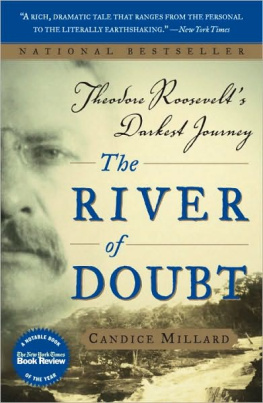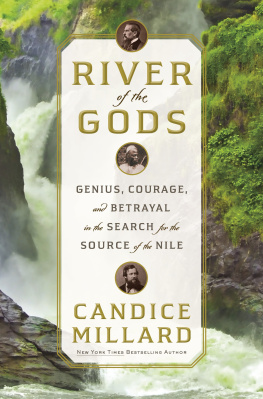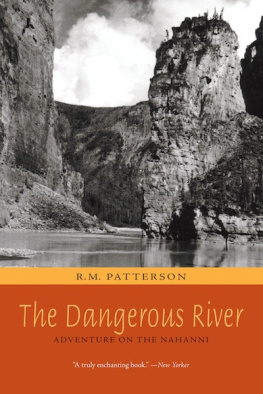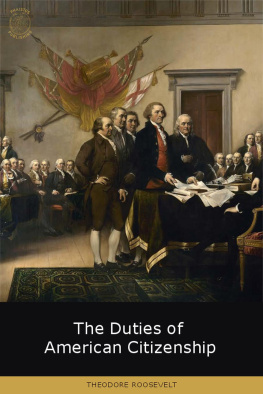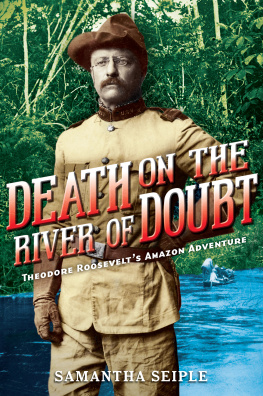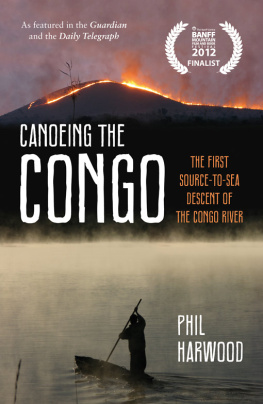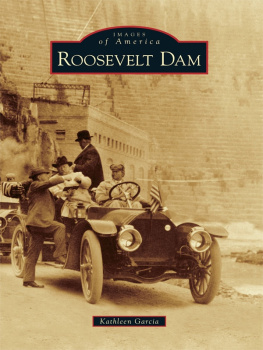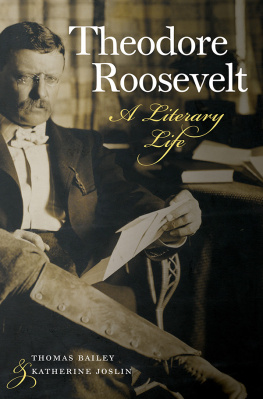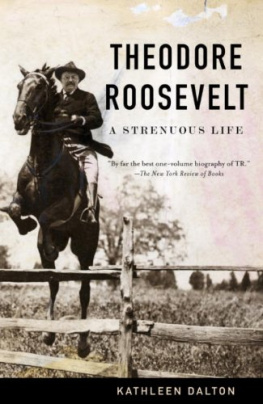Critical Acclaim for
The River of Doubt
The River of Doubt is not an ordinary biography. Its author, Candice Millard, is a credible historian as well as a former writer and editor for
National Geographic. She pays keen attention to nature, human and otherwise, in this vigorous, critter-filled account of Roosevelts last epic journey [and] juxtaposes Roosevelts larger-than-life persona with the rules of the jungle.
New York Times
Millard has crafted an eye-popping mix of presidential history, white-water epic, and jungle-will thriller. Hell, Tom Clancy could only dream of a story this good.
Mens Journal
Extremely gripping absorbing. Her writing is brisk, and short chapters help move the story along, though it is so captivating it scarcely needs any help.
Chicago Sun-Times
Millard writes with verve and precision as she vividly conveys the smothering jungle, the savage river and the flamboyant characters. Unforgettable.
Tampa Tribune
Anacondas can weigh up to 500 pounds. That fact and many others embedded in this marvelously atmospheric travel narrative are here for the readers asking and edification in Millards important contribution to the complete biographical record of the great, dynamic Teddy Roosevelt [R]eaders of both American history and travel narratives will take delight in living through these exciting pages.
Booklist
This is history that reads like a thriller beautifully written riveting.
Flint Journal
In an admirable debut, historian Millard records Theodore Roosevelts exploration of a hitherto uncharted river in the heart of the Mato Grosso. Millard tells the story wonderfully, marshaling ecology, geography, human and natural history to tell the tale of the jungle primeval, of bravery and privation, determination and murder in the ranks as cowboy Roosevelt survived the Indians of the Amazon. Teddy Roosevelts tropical adventure, splendidly related.
Kirkus Reviews
Millard proves herself highly effective in telling a good story while including all the technical truths necessary to understand a part of the world that was then essentially unknown. This is an amazing bookinteresting to a faultand it portrays a side of Roosevelt unknown to most readers.
Deseret News
Americana buffs will be entranced by this account of Roosevelts journey down the Amazon in 1913. It reads like a thriller.
Glamour
[A] gripping account Millard nails the suspense element of this story perfectly, but equally important to her success is the marvelous amount of detail she provides on the wildlife that Roosevelt and his fellow explorers encountered on their journey.
Publishers Weekly
Harrowing.
Winston-Salem Journal
The tale of Theodore Roosevelts near-death experiences exploring the Rio da Duvida in Brazil leaves little doubt about one thing: Candice Millard can write. Remarkably, this well-written page turner is Millards first book. She details the wildlife, insects, and the Amazon rain forest itself in intricate detail.
Palm Beach Post
Millard understands Roosevelt as a man. She offers a powerful depiction of the merciless rain forest, where the expedition met festering insects that rent their skins, wild rapids requiring long portages and native tribes hostile to intruders.
Bookpage
With such wonderfully morbid details, this is a tale that requires no embellishment, and Millard is admirably restrained throughout. She writes with precision and perfect pacing, and she enriches her narrative by just the right amount of historical backstory and scientific context.
San Francisco Chronicle
Excellent.
National Geographic Adventure
Millards riveting tale reveals how Roosevelts frantic desire to make an impact in his final years by making his mark on the map of the Western Hemisphere almost cost him, his son, and his team their lives. Her prose is so alive that you will be reaching for your mosquito net.
The Independent (Kansas City)
Superb of Millards talent, much can be said. Roosevelt has attracted many fine biographers, but few if any have shown a greater gift for characterization, a finer sense of pacing or a surer grasp of her subject.
The Plain Dealer
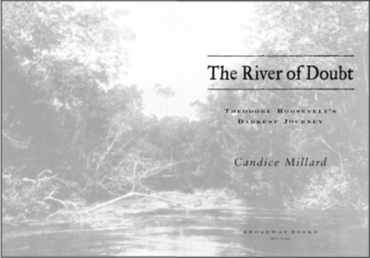
For Mark
CONTENTS
PART ONE
1. 2. 3. 4. 5.
PART TWO
6. 7. 8. 9.
PART THREE
10. 11. 12. 13. 14. 15. 16. 17.
PART FOUR
18. 19. 20. 21. 22.
PART FIVE
23. 24. 25. 26. 27.
PART SIX
28. 29.
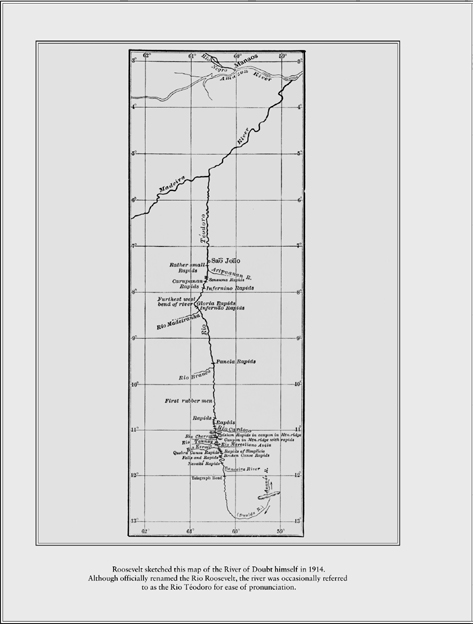
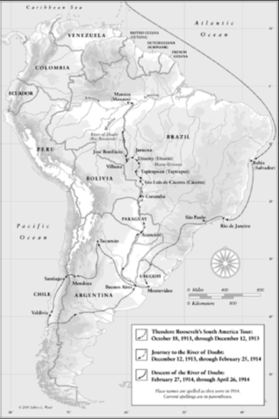
Prologue
I DONT BELIEVE HE CAN live through the night, George Cherrie wrote in his diary in the spring of 1914. A tough and highly respected naturalist who had spent twenty-five years exploring the Amazon, Cherrie too often had watched helplessly as his companions succumbed to the lethal dangers of the jungle. Deep in the Brazilian rain forest, he recognized the approach of death when he saw it, and it now hung unmistakably over Theodore Roosevelt.Less than eighteen months after Roosevelts dramatic, failed campaign for an unprecedented third term in the White House, the sweat-soaked figure before Cherrie in the jungle darkness could not have been further removed from the power and privilege of his former office. Hundreds of miles from help or even any outside awareness of his ordeal, Roosevelt hovered agonizingly on the brink of death. Suffering from disease and near-starvation, and shuddering uncontrollably from fever, the man who had been the youngest and most energetic president in his nations history drifted in and out of delirium, too weak to sit up or even to lift his head.Throughout his life, Roosevelt had turned to intense physical exertion as a means of overcoming setbacks and sorrow, and he had come to the Amazon in search of that same hard absolution. Deeply frustrated by the bitterness and betrayals of the election contest, he had sought to purge his disappointment by throwing himself headlong against the cruelest trials that nature could offer him. With only a handful of men, he had set out on a self-imposed journey to explore the River of Doubt, a churning, ink-black tributary of the Amazon that winds nearly a thousand miles through the dense Brazilian rain forest.In a lifetime of remarkable achievement, Roosevelt had shaped his own characterand that of his countrythrough sheer force of will, relentlessly choosing action over inaction, and championing what he famously termed the strenuous life. From his earliest childhood, that energetic credo had served as his compass and salvation, propelling him to the forefront of public life, and lifting him above a succession of personal tragedies and disappointments. Each time he encountered an obstacle, he responded with more vigor, more energy, more raw determination. Each time he faced personal tragedy or weakness, he found his strength not in the sympathy of others, but in the harsh ordeal of unfamiliar new challenges and lonely adventure.On the banks of the River of Doubt, the same unyielding will and thirst for achievement brought him face to face with the absolute limits of his strength. The exotic splendor of the unexplored jungle had captivated Roosevelt and his men as the journey began. No civilized man, no white man, had ever gone down or up this river, or seen the country through which we were passing, he wrote. The lofty and matted forest rose like a green wall on either hand. The trees were stately and beautiful, the looped and twisted vines hung from them like great ropes.After months in the wilderness, however, harsh jungle conditions and the rivers punishing rapids had left the expedition on the verge of disaster. Roosevelt and his men had already lost five of their seven canoes and most of their provisions, and one man had perished. What lay around the next bend was anyones guess. Even Colonel Cndido Rondon, the expeditions Brazilian co-commander, who had explored more of the Amazon than any other man alive, had no idea where the uncharted river would take them.For Roosevelts men, fears for their own survival were eclipsed only by despair about the fate of their leader. As Roosevelts fever soared to 105 degrees, Cherrie and Kermit, Roosevelts second son, were certain that they were witnessing his final hours. The scene is vivid before me, Kermit would later recall. The black rushing river with the great trees towering high above along the bank; the sodden earth under foot; for a few moments the stars would be shining, and then the sky would cloud over and the rain would fall in torrents, shutting out the sky and trees and river.As the fever-wracked former president drifted in and out of consciousness, he slipped into a trancelike delirium, reciting over and over again the opening lines to Samuel Taylor Coleridges Kubla Khan: In Xanadu did Kubla Khan a stately pleasure-dome decree. In Xanadu did Kubla Khan a stately pleasure-dome decree. In Xanadu
Next page
